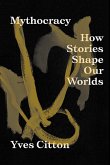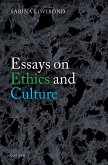These essays discuss various ontological and epistemological questions in moral philosophy, drawing on ideas from Platonic-Aristotelian ethics, the later Wittgenstein, and Iris Murdoch, though without seeking to weave these into any unified system. The general approach is realist or objectivist, paying some attention to the role of imaginative literature (especially the novel) in ethical formation. A common theme is the lived experience of the socially situated subject, including our capacity for engagement with the values present in an inherited tradition or 'form of life'. Such engagement, once raised to consciousness, may contain elements both of affirmation and of cultural critique. In the book as a whole, the critical theme predominates, with a certain emphasis on discourses of social disruption. But it is always assumed that the right place to stand as an observer of the domain of value is within that domain, and that moral critique will be immanent with respect to the culture addressed--that is, it will make do with just the conceptual and linguistic resources available to ordinary participants in moral, political, or aesthetic conversation.
Dieser Download kann aus rechtlichen Gründen nur mit Rechnungsadresse in A, B, BG, CY, CZ, D, DK, EW, E, FIN, F, GR, HR, H, IRL, I, LT, L, LR, M, NL, PL, P, R, S, SLO, SK ausgeliefert werden.









